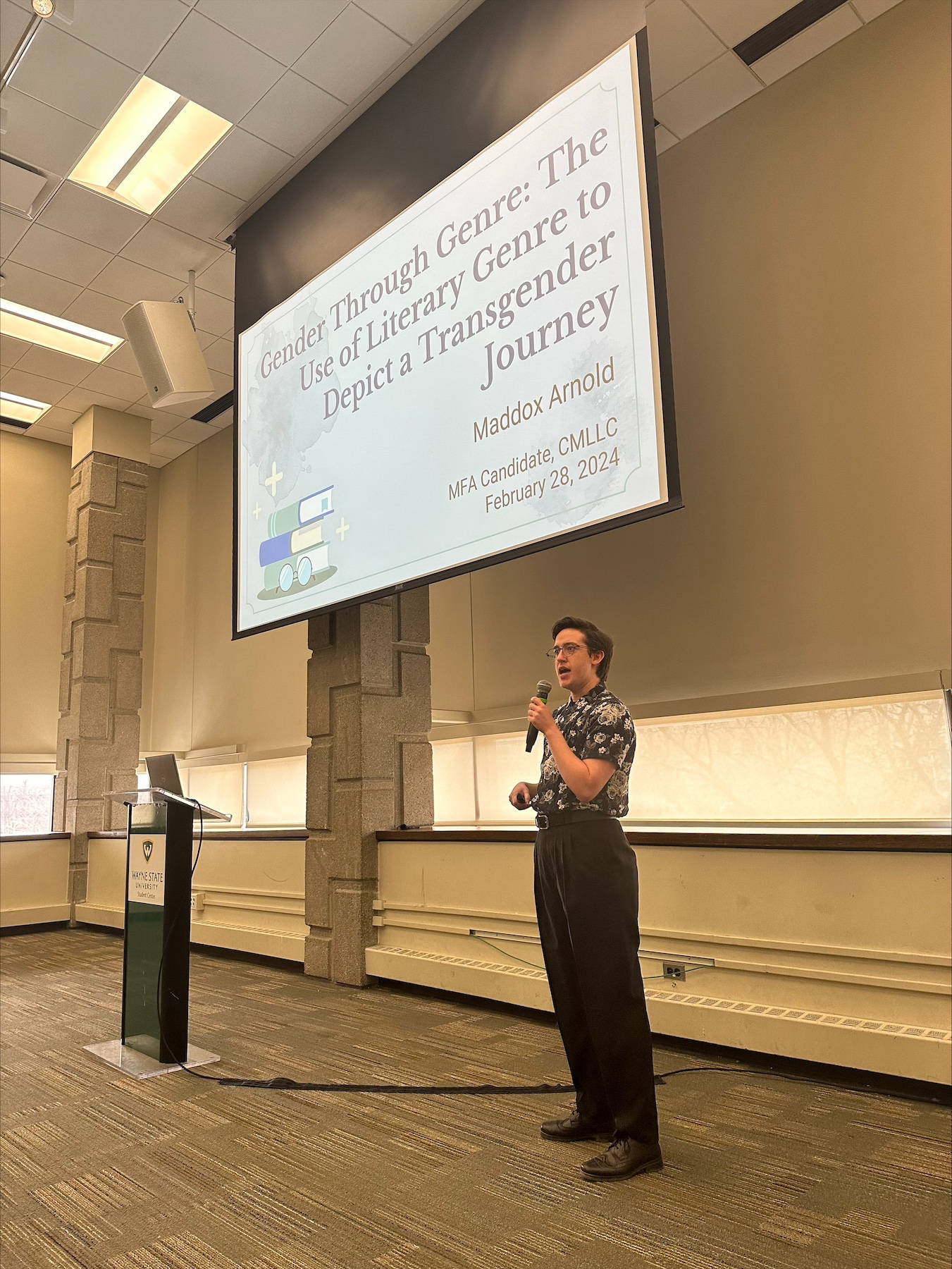Wayne State graduate student investigates what fiction can tell us about lived experience

Fiction transports us through space and time to places with people we might never have known otherwise, and when the last page turns, perhaps we will have learned something.
It’s this power that compelled graduate student Maddox Arnold to study Spanish literature at the Wayne State University College of Liberal Arts and Sciences. One book in particular has become the focal point of his master’s thesis: La cresta de Ilión or The Iliac Crest by Mexican novelist Cristina Rivera Garza.
Arnold shared an excerpt from his thesis during a platform talk at the 2024 Graduate Research Symposium in February where he demonstrated how Garza depicts a transgender journey through genre.
“I drew a connection between the psychological horror in The Iliac Crest and the fear that a lot of transgender people experience as they’re coming to terms with their identity and how we can use this novel to experience that fear ourselves,” Arnold said.
Lived experience

Psychological horror creates discomfort for the audience by exposing emotional vulnerabilities that reveal the repressed parts of the human psyche, he said. Often those vulnerabilities manifest in the characters’ external environments in dreadful ways.
In The Iliac Crest, that manifestation comes in the form of a doppelganger that haunts the main character. The femininity of this doppelganger makes the narrator deeply uncomfortable and each encounter forces them to confront their repression of gender, he said.
“I am a transgender individual myself, so I’m really passionate about finding ways that we can help people outside of the transgender community to better understand what we go through and the things that we experience.”
Arnold said that while historical texts and statistics are hugely important to understanding the transgender experience, nothing exercises the empathic muscle quite like fiction.
“Fiction and metaphor are such powerful ways to build some of the compassion and understanding that we’re missing in a lot of conversations about queer spaces.”
By Kristy Case